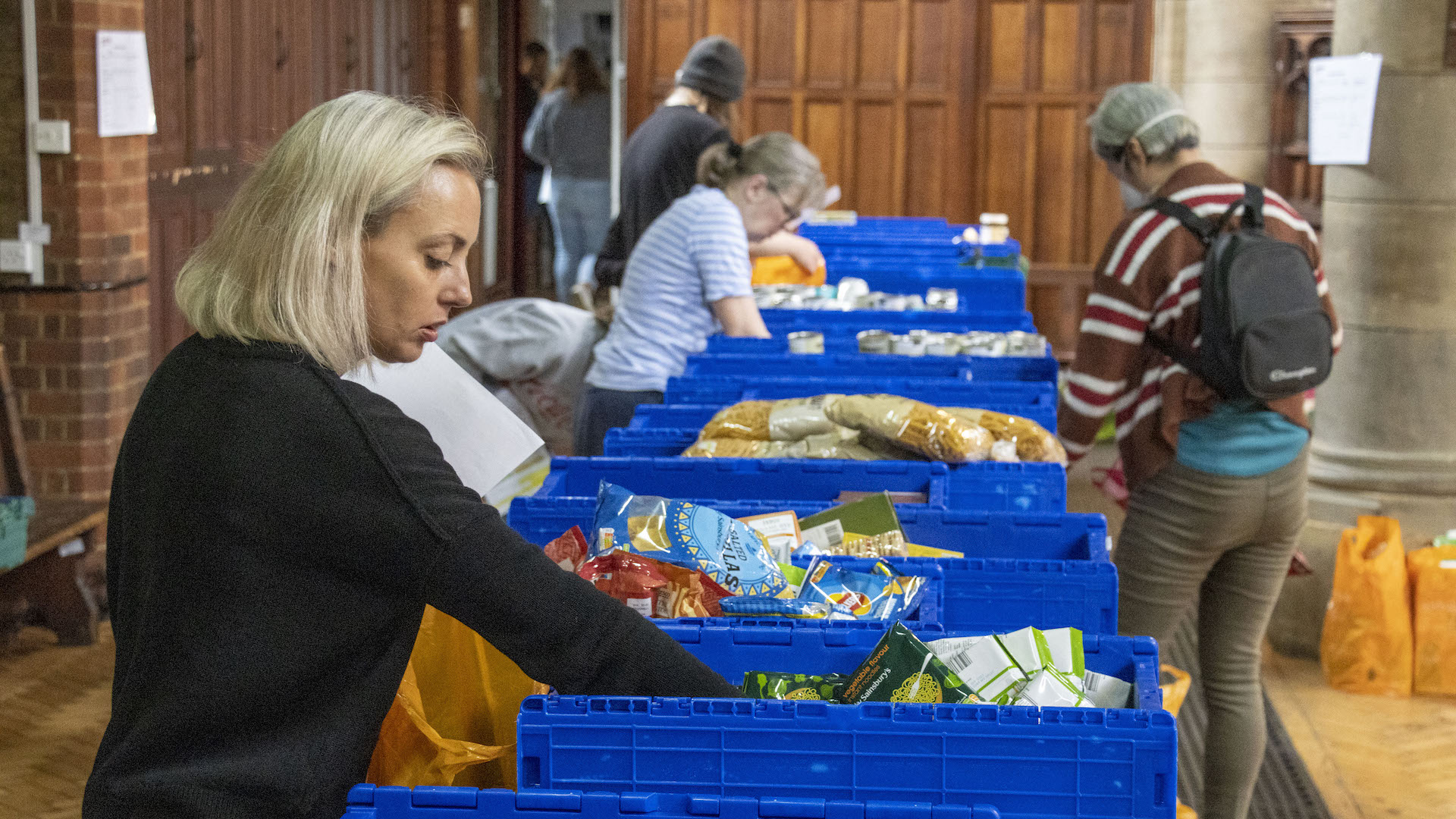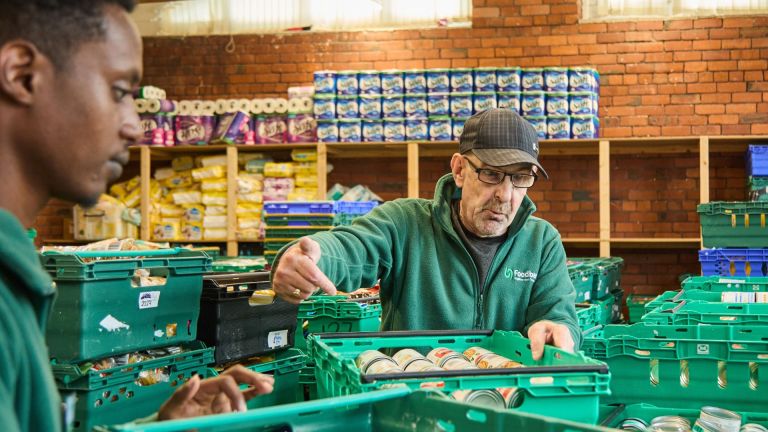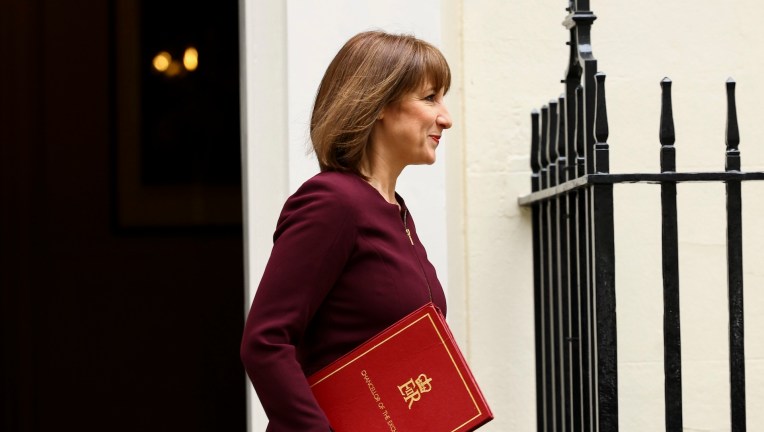White explained that from the perspective of a food bank manager, a fall in food inflation is welcome, as many food banks “have to buy some of their own stock”, however on an individual basis, it “won’t be enough to offset” the difficulties food bank users have faced in recent years.
“People are struggling in a way they’ve never been struggling before… it’s not going to make enough difference to lift people out of poverty or to stop some of the suffering we’ve been seeing.”
She added that food banks are seeing “not just increasing numbers” of people, but an increased “degree of need within individual people”.
“In the past, for example, I’d say in any food bank session, we might have one or two people who were what we would call in ‘absolute crisis’, with no food at all, or who haven’t eaten in a few days. Now, there’s often 10 to 15 households we see every week in that state,” she said.
“That’s a regular occurrence now, so that’s probably been one of the most alarming things.”
White explained that rather than inflation coming down, the thing that would impact people’s wallets most would be benefits rising with inflation, or increased payments to help with the cost of living.
Advertising helps fund Big Issue’s mission to end poverty
“The one time we do see an impact [on food bank use] is when there have been the cost of living payments, or last year, when there was help with energy costs,” she explained.
“I’m always worried when these pieces of news come out, because it’s almost like ‘everything’s going to be OK’… it will provide some temporary relief, but the problems are much deeper than that.”
Sabine Goodwin, director of the Independent Food Aid Network (IFAN), highlighted that falling inflation does not mean goods are getting cheaper, and the impact of the cost of living crisis on low-income households is “far from over”.
“Our latest data shows just how precarious the situation on the ground is both for people struggling to afford food as well as overstretched food banks trying their utmost to provide support,” Goodwin told the Big Issue.
She explained that food bank data “represents the tip of the iceberg” of numbers of people struggling, as not every household experiencing severe food insecurity will use food banks.
“IFAN has seen unprecedented increases in demand for food banks year on year and we do not anticipate this drop in the rate of food inflation to impact soaring need for food banks, because large numbers of household have built up debt, cost of living payments have been removed and, in England, the household support fund has been belatedly extended temporarily, impacting on the level of support that local authorities can provide.”
Advertising helps fund Big Issue’s mission to end poverty
She explained that multiple issues, including “insufficient wages”, the waiting time to access universal credit, and “increased numbers of sanctions” on benefits recipients “will continue to drive demand for food banks”.
“It’s critical that the government stops kicking the can down the road… nobody wants to have to use a food bank and no food bank team wants to be needed because their fellow citizens can’t afford food.”
Helen Barnard, director of policy at the Trussell Trust, told the Big Issue: “1.5 million emergency food parcels were provided to people between April and September 2023 by food banks in the charity’s UK-wide network.
“This is the most parcels that the network has ever distributed at this point in the year and represents a 16% increase from the same period in 2022.
“It’s obviously positive that food inflation is falling, however the cost is still rising and is much higher than previously. We cannot look at food prices in isolation – people are forced to turn to food banks because their incomes are just too low to cover the cost of essentials, including food and other necessary items and bills.
“We urgently need the UK government to introduce an essentials guarantee so that everyone can afford the essentials we all need to survive.”
Advertising helps fund Big Issue’s mission to end poverty
Do you have a story to tell or opinions to share about this? We want to hear from you. Get in touch and tell us more.










